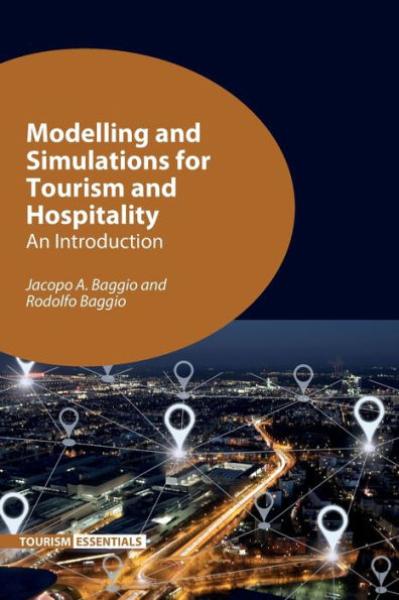Description
Using novel methodological approaches and new data, The Bilingual Advantage draws together researchers from education, economics, sociology, anthropology and linguistics to examine the economic and employment benefits of bilingualism in the US labor market, countering past res...
Patricia C. Gandara is Research Professor of Education in the Graduate School of Education and Information Studies at UCLA. She is co-director of the Civil Rights Project/Proyecto Derechos Civiles at UCLA, and a commissioner on President Obama's Advisory Commission on Educational Excellence for Hispanics. Her research focuses on language policy and racial equity.
Finally! Educators have been asking for this work for so long. There is no more timely issue for teachers, parents and policy-makers today than what research says about creating a system that fosters bilingualism among all students. After decades of politicized and polarized debates on English Only, it's time to have a thoughtful discussion of the enriching advantages of dual language acquisition as a basic part of public education.
--Lily Eskelsen Garcia, President, National Education Association, USA "Lang Policy, DOI 10.1007/s10993-015-9362-2"This is one of the most exciting books on bilingualism in the US that I have read in a long time! While many of us argue about the place of bilingualism in US schools, Callahan and Gandara have advanced the conversation by focusing on the economic return of bilingualism and its effect on the labor market. The analyses of large datasets, both quantitative and qualitative, and performed by US and European scholars, give evidence of the complexity of the economic effects of bilingualism, but also of new conditions in the global labor market in which young bilingual people operate today.
--Ofelia Garcia, The Graduate Center, The City University of New York, USA "Lang Policy, DOI 10.1007/s10993-015-9362-2"This is the book we all have been waiting for. It does for bilingualism what Thomas Piketty has famously done for capitalism: it dismantles age-old myths and tired cliches with muscular data, conceptual clarity, and careful argumentation. In the Age of Globalization, we must undo the monolingual regime at the heart of the American experience and give children, youth, and indeed all citizens alike, the opportunity to fully partake of the 'bilingual advantage.' We will then be a richer, smarter, safer society.
--Marcelo M. Suarez-Orozco, Dean and Distinguished Professor of Education, UCLA Graduate School of Education & Information Studies, USA "Lang Policy, DOI 10.1007/s10993-015-9362-2"This volume will appeal to a broad readership. Researchers can build upon the findings shared within to further explore the role of bilingualism in the US economy. Educators will find in it a tool to help make the case for bilingual education programs...For policy makers, the book also offers insight into how bilingual Americans live in the United States and provides cause for considering the cost of not educating balanced
bilinguals...This volume does not provide all the answers, but it does aim to initiate a discourse on the perceived bilingual advantage.
Finally! Educators have been asking for this work for so long. There is no more timely issue for teachers, parents and policy-makers today than what research says about creating a system that fosters bilingualism among all students. After decades of politicized and polarized debates on English Only, it's time to have a thoughtful discussion of the enriching advantages of dual language acquisition as a basic part of public education. - Lily Eskelsen Garc?a, President, National Education Association, USA
This is one of the most exciting books on bilingualism in the US that I have read in a long time! While many of us argue about the place of bilingualism in US schools, Callahan and G?ndara have advanced the conversation by focusing on the economic return of bilingualism and its effect on the labor market. The analyses of large datasets, both quantitative and qualitative, and performed by US and European scholars, give evidence of the complexity of the economic effects of bilingualism, but also of new conditions in the global labor market in which young bilingual people operate today. - Ofelia Garc?a, The Graduate Center, The City University of New York, USA
This is the book we all have been waiting for. It does for bilingualism what Thomas Piketty has famously done for capitalism: it dismantles age-old myths and tired clich's with muscular data, conceptual clarity, and careful argumentation. In the Age of Globalization, we must undo the monolingual regime at the heart of the American experience and give children, youth, and indeed all citizens alike, the opportunity to fully partake of the 'bilingual advantage.' We will then be a richer, smarter, safer society. - Marcelo M. Su?rez-Orozco, Dean and Distinguished Professor of Education, UCLA Graduate School of Education & Information Studies, USA
This volume will appeal to a broad readership. Researchers can build upon the findings shared within to further explore the role of bilingualism in the US economy. Educators will find in it a tool to help make the case for bilingual education programs...For policy makers, the book also offers insight into how bilingual Americans live in the United States and provides cause for considering the cost of not educating balanced bilinguals...This volume does not provide all the answers, but it does aim to initiate a discourse on the perceived bilingual advantage. - Enrique David Degollado, The University of Texas at Austin, USA - Lang Policy, DOI 10.1007/s10993-015-9362-2
Product Details
- National Book Network Brand
- Oct 3, 2014 Pub Date:
- 1783092416 ISBN-10:
- 9781783092413 ISBN-13:
- 318 Pages
- 9.35 in * 6.2 in * 0.64 in Dimensions:
- 1 lb Weight:




